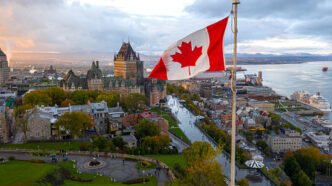Moose Jaw Announces Priority Occupations for Canada’s Rural Community Immigration Pilot
The Canadian city of Moose Jaw, Saskatchewan, has unveiled its list of priority sectors and occupations under the Rural Community Immigration Pilot (RCIP), an employer-driven immigration pathway aimed at addressing labour shortages in rural Canada.
The announcement is part of Moose Jaw’s broader strategy to attract and retain skilled foreign workers to support its growing economy and community needs.
What Is the RCIP?
The Rural Community Immigration Pilot (RCIP), launched earlier this year, is a community-based immigration initiative designed to:
- Help smaller Canadian communities facing chronic labour shortages.
- Allow designated local employers to hire qualified foreign workers.
- Provide a direct pathway to permanent residence for eligible candidates and their families.
Unlike traditional immigration programs, the RCIP is highly localized. Communities such as Moose Jaw are directly involved in identifying their workforce needs and recommending candidates to the federal government for permanent residency.
Moose Jaw’s Priority Sectors
In its latest update, Moose Jaw highlighted sectors that are struggling to fill positions with local talent. These include:
- Healthcare: Nurses, healthcare aides, medical technologists, and support workers.
- Hospitality and Food Services: Cooks, restaurant managers, food service supervisors, and hotel staff.
- Agriculture: Farm workers, equipment operators, and livestock technicians.
- Trades and Construction: Carpenters, welders, plumbers, and heavy-duty equipment mechanics.
- Transportation and Logistics: Truck drivers and supply chain workers.
- Childcare and Education Support: Early childhood educators and teaching assistants.
Why Moose Jaw?
Located in southern Saskatchewan, Moose Jaw has been actively working to boost its population and economy. The city faces the dual challenge of an aging workforce and labour shortages in key sectors.
By participating in the RCIP, Moose Jaw aims to:
- Attract skilled immigrants who can fill gaps in the local labour market.
- Support employers struggling to recruit locally.
- Strengthen community growth and cultural diversity.
Mayor Clive Tolley has previously emphasized that immigration is vital to sustaining Moose Jaw’s economic momentum:
“We want Moose Jaw to be a welcoming city where newcomers not only find jobs but also build long-term futures.”
Benefits for Foreign Workers
For foreign workers, the RCIP offers a unique opportunity:
- Direct Pathway to Permanent Residence: Unlike temporary work permits, the RCIP provides a clear route to permanent residency.
- Community Support: Selected communities like Moose Jaw provide settlement services to help newcomers adjust.
- Employer-Driven Process: Workers are matched with designated employers, reducing uncertainty in job hunting.
How the Application Process Works
- Employer Recruitment: Designated employers in Moose Jaw identify and recruit foreign workers for priority occupations.
- Community Recommendation: Once selected, candidates receive a community recommendation.
- Federal Application: Candidates apply for permanent residence through Immigration, Refugees and Citizenship Canada (IRCC), using the community’s recommendation as part of their eligibility.
- Settlement Support: Upon arrival, Moose Jaw provides settlement services, including housing assistance, language training, and community integration programs.
Broader Impact of RCIP
Canada has been using community-driven immigration pilots, such as the Rural and Northern Immigration Pilot (RNIP), to successfully bring skilled workers to smaller towns. The Moose Jaw RCIP is expected to:
- Boost local businesses by filling critical roles.
- Increase population retention in rural Saskatchewan.
- Strengthen Canada’s broader rural immigration strategy.
Conclusion
With its announcement of priority sectors and occupations, Moose Jaw has positioned itself as a leading example of how smaller Canadian cities can harness immigration to solve pressing workforce challenges.
For foreign workers seeking a stable pathway to permanent residence and the chance to contribute to a thriving rural community, Moose Jaw’s participation in the Rural Community Immigration Pilot could open new doors to life in Canada.














